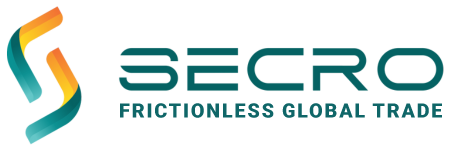Legacy E-Bills of Lading
Traditional e-bills of lading, introduced by various providers since the early 2000s, base their legal validity on a private multi-party agreement known as the “rulebook.” Despite their potential, these legacy e-bills have seen limited adoption, with a current usage rate of only 1-2% in maritime cross-border trade. Key limitations include:
- Legal Complexity: The intricate and resource-intensive nature of the rulebook agreement limits operational flexibility and makes onboarding challenging.
- Limited Use as Pledgeable Securities: Legacy e-bills fail to function effectively as collateral because of the lack of robust legal validity and the use of obsolete technology, restricting their application in crucial financial and lending activities.
Recent Regulatory Changes
In response to these limitations, recent regulatory changes have bolstered the legal recognition of e-bills of lading. Singapore (2021) and England (2023) passed robust legislation recognizing electronic bills of lading as legally equivalent to paper documents. This shift is significant, as approximately 95% of cross-border bills of lading are governed by English or Singaporean law. Other jurisdictions, such as France, Germany, the Netherlands, and the US, are also adopting e-bill friendly laws.
Tokenized Bills of Lading
The advent of tokenized bills of lading, introduced by SECRO in early 2023, represents a major advancement. These e-bills offer several benefits over traditional methods:
- Easier Adoption: Tokenized bills eliminate the need for a rulebook, simplifying adoption.
- Legal Robustness: They natively comply with the latest trade regulations and are recognized globally.
- Collateral Functionality: As Non-Fungible Tokens (NFTs), tokenized bills can be used as pledgeable securities, addressing critical needs in trade finance.
Tokenized bills of lading, insured and approved by the International Group of Protection and Indemnities (IGP&I), provide unprecedented security and efficiency. They reduce capital reserve requirements, lower trade financing costs, and mitigate financial risks, offering significant benefits to the banking and trade commodity finance industries.
Conclusion
The use of specific, private, reliable blockchain technology is necessary to create tokenized bills of lading, able to function both as document of title and as a collateralizable security. This additional technological effort and achievement, proprietary to Secro and protected by patents pending in the UK and US, is what makes Secro’s tokenized bill of lading standing apart from legacy e-bills of lading.
As of today, according to patentability and market researches, Secro provides the only tokenization technology already available in production and actively used by multiple traders, shipping companies and soon financial institutions across multiple trade lanes. The Secro tokenized bills of lading demonstrates clear advantages in practical applications, including reduced capital requirements and improved transaction efficiency. While still being easy to adopt by users, Secro eBL is able to comply with the strictest requirements such as eUCP presentation, IGP&I insurability, BIMCO documentary standards, ICC data structure, various local customs regulations and trade laws.

